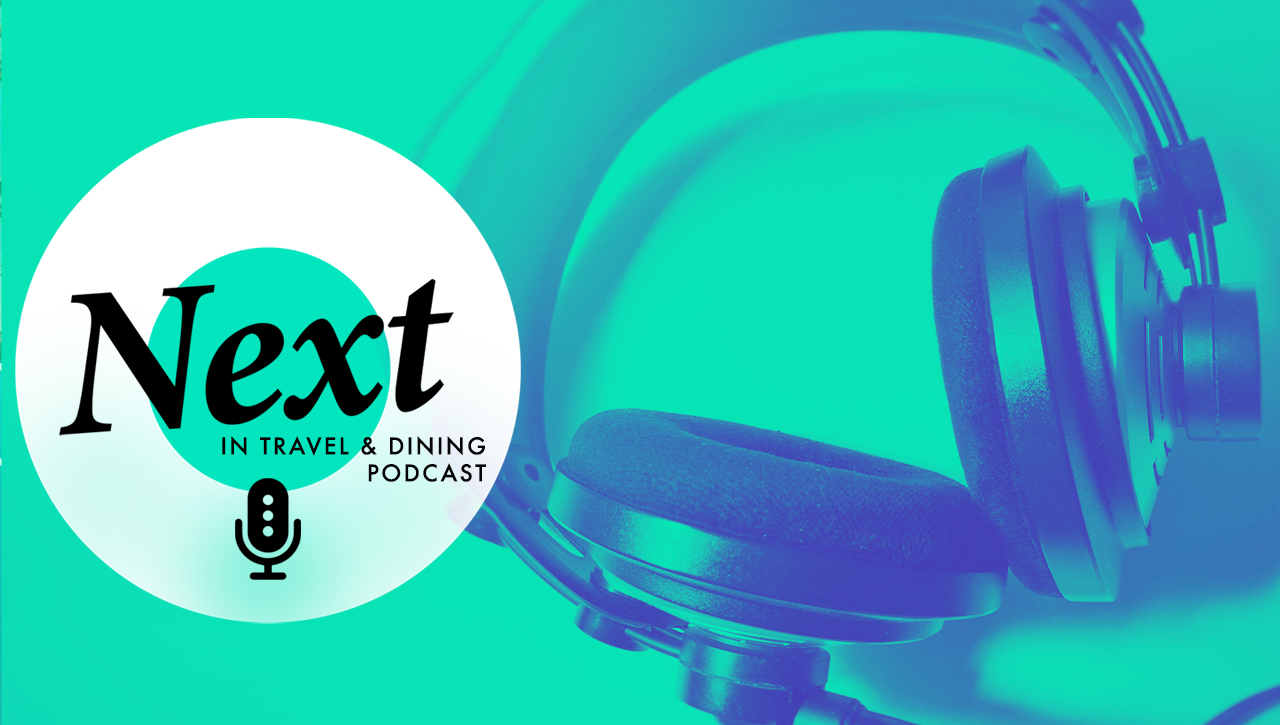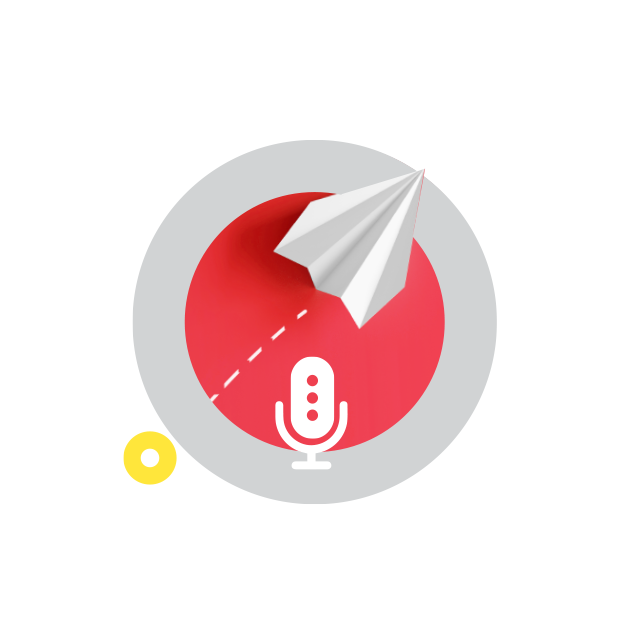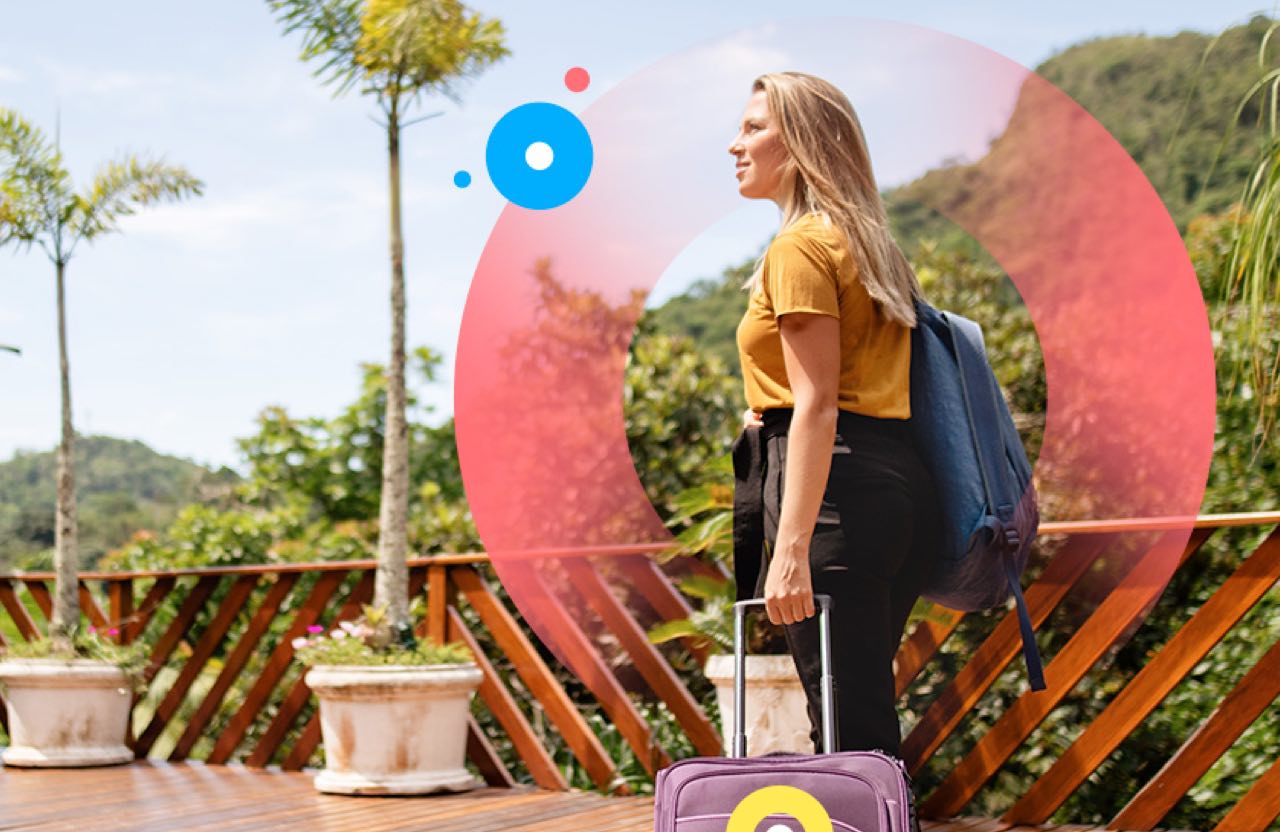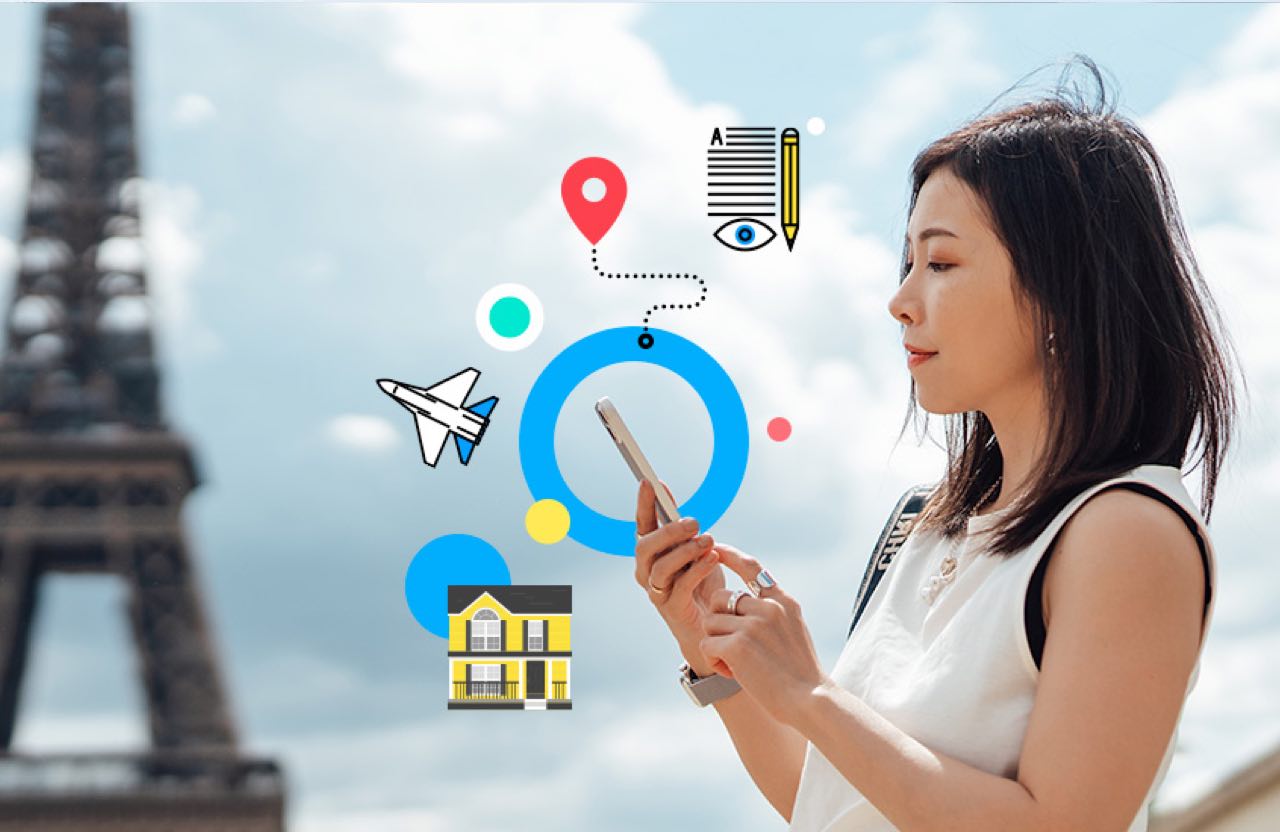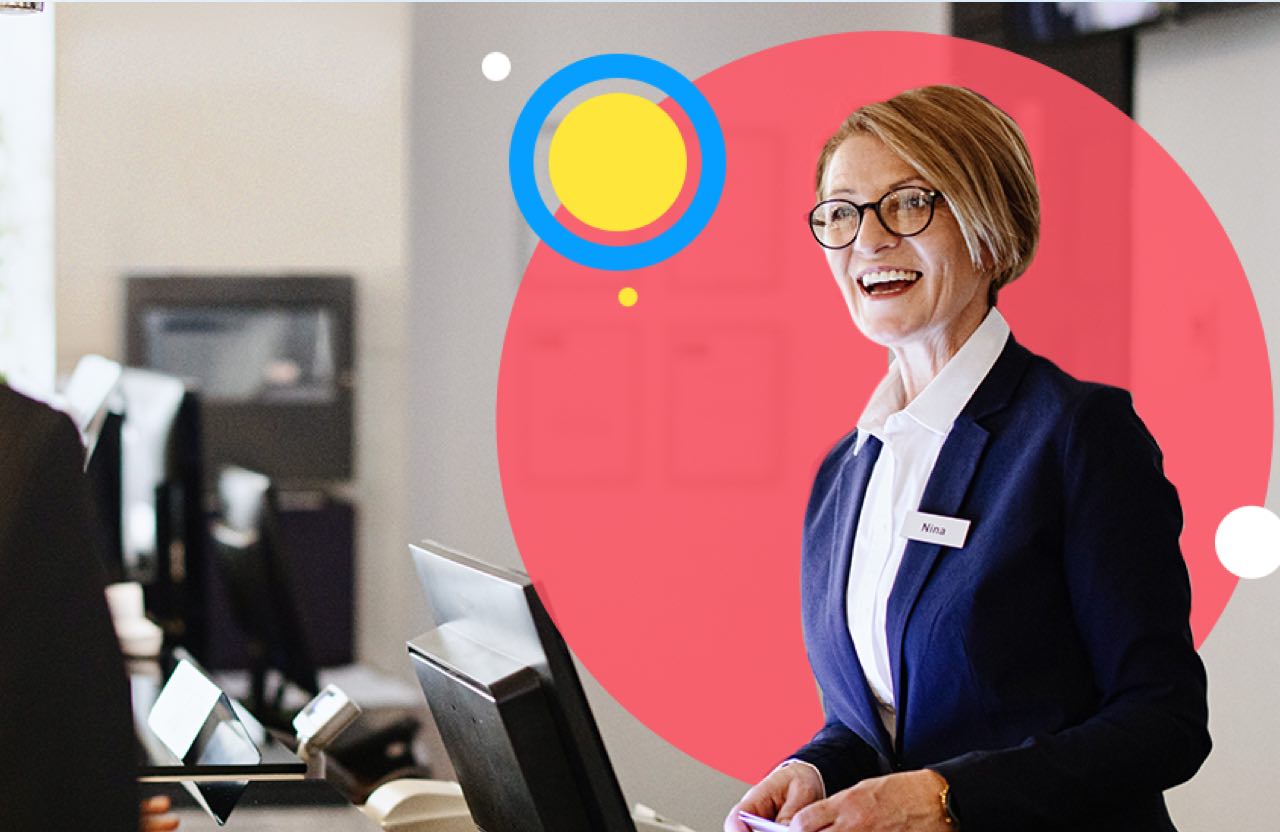Hannah: You're listening to Next in Travel & Dining from Publicis Sapient, the podcast that shares insights on unlocking what's next in digital transformation.
I'm super excited to be joined here today by Ed Vanga, and we'll be walking through guest and employee experience, the future and the top insights that you need to shape your business. Hey, Ed. Welcome to the show. Super excited to have you.
Ed: Hi, thanks for—thanks for having me. This is your place?
Hannah: I wish. How are you enjoying it thus far because you're over from the U.S.?
Ed: Yeah, it's great. I'm bleisuring. I took some time away from work to spend some time with family, and it's been a wonderful experience after two and a half years, three years of less-than-ideal travel circumstances.
Hannah: First things first, talk to me about guest and employee experience pre pandemic—a very very different situation to where we're now. What are the biggest changes that have happened?
Ed: Yeah, I think pre-pandemic, it's easiest to say we probably fell into some ruts; you know everybody kind of fell into their roles and responsibilities. And in a pre-pandemic world it could almost be said that for the business traveler specifically, your loyalty was subsidized and earned early and it was never really questioned.
And now in a post-pandemic world where your work life, I'm sure, has changed. I know mine has changed substantially. It's probably not as easy to say when I'm, like, only traveling once a month or once a quarter that my loyalty and my brand enthusiasm is assumed.
So, I think I'd say that's probably the biggest change. Some of the old ways still apply to business travel, right? Like there are some price limitations. There are some tool limitations. If you're using an online travel agency through work, stuff like that, I think if you have options in the business traveling world, you're kind of dating, like you're looking around to see who else is out there.
Hannah: Yeah, yeah, yeah.
Ed: You know, you may go back home, but you're going to go see what's out there. But in the leisure space, it's completely, completely different. You're seeing a shift in where itineraries are started, whether or not you're starting with air travel or hotel, you're seeing a lot more focus on unique experiences.
Brand loyalty isn't as powerful as it used to be, and I think that's because post-pandemic, at least for part of it, there isn't the business traveler with a huge points balance and tons of brand affinity that's going to stay in an ecosystem. Now you're thinking I'm gonna spend my money to go have my vacation that I haven't had the way I've wanted it in a very long time. Somebody woo me, win me over, so I think that is changing behavior substantially on both sides.
Hannah: Talk to me about the employees. I feel like, particularly in the pandemic, you couldn't go a day or two without reading about labor shortages in the industry. How is it that, really, you can actually enable a great experience through your employees?
Ed: Well, your employees are the final touchpoint, right? If you look at short-term rental in particular, it's one of the places where they're weak, because in short-term rental, you may not see the employee at all. You know, if you're using one of the big players.
Hannah: You know, I always do the contactless. I never want to meet anyone, which is terrible.
Ed: Exactly. And you know in the early days of a couple of those companies, it was really part of the value prop that you might get somebody who lives nearby or might live in the same building show you around.
Hannah: Right. Yeah, yeah, yeah.
Ed: For the—as the market has expanded, even to folks like my wife, like there is no interest in meeting the employee or the owner of the property, even if it's run by a property management company.
You want it to feel like a hotel, but you also want to not feel like a hotel. But in the hotel ecosystem, the employee is really important to delivering on the brand promise, right?
Ed: They're the ones who are responsible for sort of representing the personality of your brand on location, especially in premium and luxury.
Hannah: Why are people moving away from actually—although, you know, delivering the employee experience is really important, sometimes I don't wanna meet any of the employees. Is it convenience? Is it—are we all introverts after the pandemic? Like what? Why has that shift happened?
Ed: Yes, there's no—I don't think that. I've not looked at the data, and normally I do look at the data on those kinds of things. I think it's hard to collect. I think sentiment is different depending on who you are and what your expectations are, and if you go all the way back to the beginning, right? Hospitality is really about setting expectations and then living up to them, right?
So, if you're setting a luxury expectation with someone, I know that if I'm going to hotels I probably can't afford in the city that I'm going to get very hands-on white-glove service because that's the expectation that's been set by the brand. If I'm staying at an economy hotel in the U.S., or probably even here, like the expectations are different.
My expectations are around cleanliness, security and being able to set those expectations clearly in the brand promise that you make with your marketing material or anything else and then delivering on them is hugely important.
I think the employee playing their role in that ecosystem is how you execute in that last final mile, right, because all of your recovery, if there's a bad customer service experience, is happening for a person.
Hannah: It's mattered by that.
Ed: Yeah, which is where short-term rentals fall short, right, because recovery might be a text away. It might be that—I called, I had a hot water heater issue in my stay and my support was at a football match, and he was like, well, let me call you back.
Hannah: That was very British, I love it.
Ed: That's what I get for calling on a Saturday night, but, you know, it was difficult, right? So that's the thing, right? The employee and being able to empower the employee to deliver on your brand is hugely important.
Hannah: I want to explore that from a different angle of then meshing digital and physical cause I think that's another point of contactless, right, of, you know, when we go on trips now, there is always a physical element, but we're moving more and more into putting things on platforms and launching new digital services. How do I make that work together?
Ed: It's really about understanding what promises you are making to the guests before they enter your ecosystem, and then designing the technology to help your employees meet those expectations. I keep coming back to that theme over and over again because it's super important.
And it's important to note that there's not a one-size-fits-all answer. I wouldn't say to the Saint Regis here the same thing I might say to a Holiday Inn. It's just not how the brands are structured and not how the expectation structure is built, but it is important to say that if you're going to bring technology into the equation, you have to make sure that it solves the problem and you have to listen to what your employees are asking for you to solve.
Hannah: Do you see that in your line of work, people throwing technology at solutions where it's not needed?
Ed: Every day. It's not malice, it's not benign neglect. It is legitimately sometimes we get so caught up in the idea that the digital component of the experience is let's acquire someone. Let's get them interested in our product. Let's get them booked and let's get them into the system.
And as product managers, we sometimes look at that as the win. I'm done. I don't, I don't need to know what happens next. If they cancel, if it's terrible, like, I got them in the door, that's my metric. I got a conversion. But because they don't think about the other half, they also don't ask about the other half, right? That's our job as product managers, we're supposed to always be representative of the customer in the room, and sometimes that customer is the actual guest, and sometimes the customer is also the employee.
What are they telling us that the guest needs in a stay to solve a problem, right? Do they want to order their towels through a mobile app? Do they even know they can do that, or do they want to pick up the phone and call? And then if there was a technology solution for that, what could it be, right?
Ed: It's about approaching the problems a different way and really listening to what the employees and the guests are telling you beyond the booking.
Hannah: And you're with clients day in, day out, and I'm sure you always get asked this, but I wanted to round it out with I'm going in thinking about my strategy in 2023 and beyond. I've got three pools of investment that I can make this year. What is it going to be?
Where are you directing clients towards and where are you saying actually, you know, I don't think that's worth prioritizing or investing in?
Ed: You forgot the critical part of that, it's usually I have these three pools of investment and I have three weeks to make this decision. Are you available this weekend?
Hannah: Can you give me the decision yesterday?
Ed: Yeah, exactly. For us, it's always, you know, it's cliche, but it's always the data first, you know, we try to look at what is going to drive the most economic value quickly because, you know, two-year, five-year roadmaps are very important. They help you set the strategy. They help you talk to your board. They help you talk to your investors.
But at the end of the day, the real product magic is happening at like the six month mark, right? So, what can I do tomorrow that can help me increase my metrics, whether it be revenue or conversion or user acquisition that can drive continued investment? Because it's not uncommon for many of our clients and many companies to get to Q3-Q4 and the claw back starts, so you got to show some progress in the early part of the year. So being able to use the data, which we are all awash in now, to prioritize the decision and then say let's trust it.
We've got enough. We're not going to have the perfect picture, but we're going to go, and then we're going to test. Well, we're going to put something in market, and it might fail. That's another, like, product manager thing you have to be comfortable with, it's like you might put some something out there that doesn't work, you have to collect the learnings from. So that's the biggest thing.
Like, if someone came at us with, you know, two or three pots of investment the first thing, first place we're going to go to, and the last place we're going to go to, is the data.
Hannah: I have loved having you here with us. Thank you so much for joining us and giving up your time on your vacation. Have you got any fun plans for the rest of your time here in London?
Ed: I have to deliver on a trip to the London Eye, probably two loops, if I know my kids.
Hannah: I’m disappointed in you. I thought you were going to do something more wacky than that, I must admit. Or something that ties in with bleisure.
Ed: I mean, I'm already bleisuring. I thought you were hoping I'd do something much more posh.
Hannah: You're bleisuring hard now.
Ed: Bleisuring as hard as it gets.
Hannah: Hey Ed, thank you so much for joining us, again.
Hannah: Thanks for tuning in. Be sure to subscribe to keep up on what's happening in Travel and Dining.





